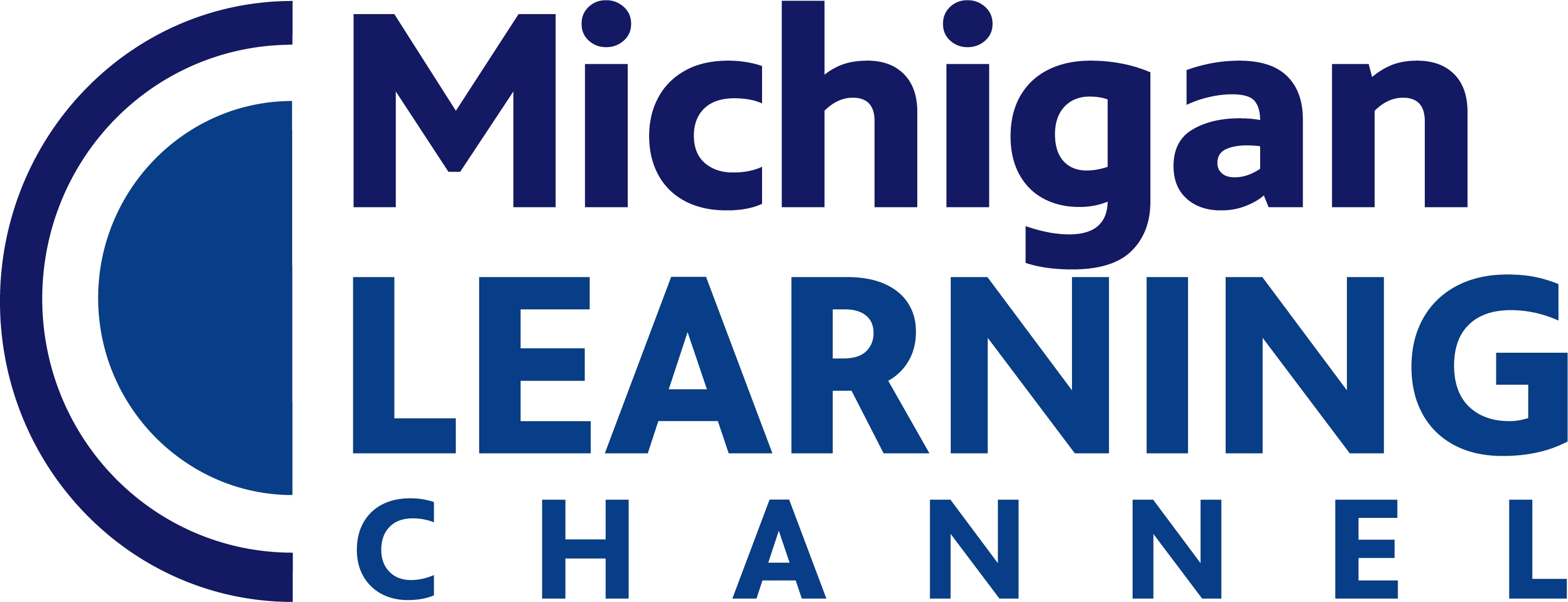Subjects
Shows
Recognize variations from standard English in their own and others' writing and speaking, and identify and use strategies to improve expression [...]
Demonstrate command of the conventions of standard English capitalization, punctuation, and spelling when writing.
Use punctuation (commas, parentheses, dashes) to set off nonrestrictive/parenthetical elements.*
Use knowledge of language and its conventions when writing, speaking, reading, or listening.
Choose language that expresses ideas precisely and concisely, recognizing and eliminating wordiness and redundancy.*
Determine or clarify the meaning of unknown and multiple-meaning words and phrases based on grade 6 reading and content, choosing [...]
Use context (e.g., the overall meaning of a sentence or paragraph; a word’s position or function in a sentence) as [...]
Use common, grade-appropriate Greek or Latin affixes and roots as clues to the meaning of a word (e.g., audience, auditory, [...]
Consult reference materials (e.g., dictionaries, glossaries, thesauruses), both print and digital, to find the pronunciation of a word or determine [...]
Verify the preliminary determination of the meaning of a word or phrase (e.g., by checking the inferred meaning in context [...]
Demonstrate understanding of figurative language, word relationships, and nuances in word meanings.
Use the relationship between particular words (e.g., cause/effect, part/whole, item/category) to better understand each of the words.
Distinguish among the connotations (associations) of words with similar denotations (definitions) (e.g., stingy, scrimping, economical, unwasteful, thrifty).
Provide a conclusion that follows from the narrated experiences or events.
Produce clear and coherent writing in which the development, organization, and style are appropriate to task, purpose, and audience. (Grade-specific [...]
With some guidance and support from peers and adults, develop and strengthen writing as needed by planning, revising, editing, rewriting, [...]
Use technology, including the Internet, to produce and publish writing as well as to interact and collaborate with others; demonstrate [...]
Conduct short research projects to answer a question, drawing on several sources and refocusing the inquiry when appropriate.
Gather relevant information from multiple print and digital sources; assess the credibility of each source; and quote or paraphrase the [...]
Draw evidence from literary or informational texts to support analysis, reflection, and research.
Apply grade 6 Reading standards to literature (e.g., “Compare and contrast texts in different forms or genres [e.g., stories and [...]
Apply grade 6 Reading standards to literary nonfiction (e.g., “Trace and evaluate the argument and specific claims in a text, [...]
Engage effectively in a range of collaborative discussions (one-on-one, in groups, and teacher-led) with diverse partners on grade 6 topics, [...]
Come to discussions prepared, having read or studied required material; explicitly draw on that preparation by referring to evidence on [...]
Follow rules for collegial discussions, set specific goals and deadlines, and define individual roles as needed.
Pose and respond to specific questions with elaboration and detail by making comments that contribute to the topic, text, or [...]
Review the key ideas expressed and demonstrate understanding of multiple perspectives through reflection and paraphrasing.
Interpret information presented in diverse media and formats (e.g., visually, quantitatively, orally) and explain how it contributes to a topic, [...]
Delineate a speaker’s argument and specific claims, distinguishing claims that are supported by reasons and evidence from claims that are [...]
Present claims and findings, sequencing ideas logically and using pertinent descriptions, facts, and details to accentuate main ideas or themes; [...]
Include multimedia components (e.g., graphics, images, music, sound) and visual displays in presentations to clarify information.
Adapt speech to a variety of contexts and tasks, demonstrating command of formal English when indicated or appropriate. (See grade [...]
Demonstrate command of the conventions of standard English grammar and usage when writing or speaking.
Compare and contrast one author’s presentation of events with that of another (e.g., a memoir written by and a biography [...]
Write arguments to support claims with clear reasons and relevant evidence.
Write routinely over extended time frames (time for research, reflection, and revision) and shorter time frames (a single sitting or [...]
Support claim(s) with clear reasons and relevant evidence, using credible sources and demonstrating an understanding of the topic or text.
Use words, phrases, and clauses to clarify the relationships among claim(s) and reasons.
Provide a concluding statement or section that follows from the argument presented.
Write informative/explanatory texts to examine a topic and convey ideas, concepts, and information through the selection, organization, and analysis of [...]
Introduce a topic; organize ideas, concepts, and information, using strategies such as definition, classification, comparison/contrast, and cause/effect; include formatting (e.g., [...]
Develop the topic with relevant facts, definitions, concrete details, quotations, or other information and examples.
Use appropriate transitions to clarify the relationships among ideas and concepts.
Use precise language and domain-specific vocabulary to inform about or explain the topic.
Subjects
Shows
Recognize variations from standard English in their own and others' writing and speaking, and identify and use strategies to improve expression [...]
Demonstrate command of the conventions of standard English capitalization, punctuation, and spelling when writing.
Use punctuation (commas, parentheses, dashes) to set off nonrestrictive/parenthetical elements.*
Use knowledge of language and its conventions when writing, speaking, reading, or listening.
Choose language that expresses ideas precisely and concisely, recognizing and eliminating wordiness and redundancy.*
Determine or clarify the meaning of unknown and multiple-meaning words and phrases based on grade 6 reading and content, choosing [...]
Use context (e.g., the overall meaning of a sentence or paragraph; a word’s position or function in a sentence) as [...]
Use common, grade-appropriate Greek or Latin affixes and roots as clues to the meaning of a word (e.g., audience, auditory, [...]
Consult reference materials (e.g., dictionaries, glossaries, thesauruses), both print and digital, to find the pronunciation of a word or determine [...]
Verify the preliminary determination of the meaning of a word or phrase (e.g., by checking the inferred meaning in context [...]
Demonstrate understanding of figurative language, word relationships, and nuances in word meanings.
Use the relationship between particular words (e.g., cause/effect, part/whole, item/category) to better understand each of the words.
Distinguish among the connotations (associations) of words with similar denotations (definitions) (e.g., stingy, scrimping, economical, unwasteful, thrifty).
Provide a conclusion that follows from the narrated experiences or events.
Produce clear and coherent writing in which the development, organization, and style are appropriate to task, purpose, and audience. (Grade-specific [...]
With some guidance and support from peers and adults, develop and strengthen writing as needed by planning, revising, editing, rewriting, [...]
Use technology, including the Internet, to produce and publish writing as well as to interact and collaborate with others; demonstrate [...]
Conduct short research projects to answer a question, drawing on several sources and refocusing the inquiry when appropriate.
Gather relevant information from multiple print and digital sources; assess the credibility of each source; and quote or paraphrase the [...]
Draw evidence from literary or informational texts to support analysis, reflection, and research.
Apply grade 6 Reading standards to literature (e.g., “Compare and contrast texts in different forms or genres [e.g., stories and [...]
Apply grade 6 Reading standards to literary nonfiction (e.g., “Trace and evaluate the argument and specific claims in a text, [...]
Engage effectively in a range of collaborative discussions (one-on-one, in groups, and teacher-led) with diverse partners on grade 6 topics, [...]
Come to discussions prepared, having read or studied required material; explicitly draw on that preparation by referring to evidence on [...]
Follow rules for collegial discussions, set specific goals and deadlines, and define individual roles as needed.
Pose and respond to specific questions with elaboration and detail by making comments that contribute to the topic, text, or [...]
Review the key ideas expressed and demonstrate understanding of multiple perspectives through reflection and paraphrasing.
Interpret information presented in diverse media and formats (e.g., visually, quantitatively, orally) and explain how it contributes to a topic, [...]
Delineate a speaker’s argument and specific claims, distinguishing claims that are supported by reasons and evidence from claims that are [...]
Present claims and findings, sequencing ideas logically and using pertinent descriptions, facts, and details to accentuate main ideas or themes; [...]
Include multimedia components (e.g., graphics, images, music, sound) and visual displays in presentations to clarify information.
Adapt speech to a variety of contexts and tasks, demonstrating command of formal English when indicated or appropriate. (See grade [...]
Demonstrate command of the conventions of standard English grammar and usage when writing or speaking.
Compare and contrast one author’s presentation of events with that of another (e.g., a memoir written by and a biography [...]
Write arguments to support claims with clear reasons and relevant evidence.
Write routinely over extended time frames (time for research, reflection, and revision) and shorter time frames (a single sitting or [...]
Support claim(s) with clear reasons and relevant evidence, using credible sources and demonstrating an understanding of the topic or text.
Use words, phrases, and clauses to clarify the relationships among claim(s) and reasons.
Provide a concluding statement or section that follows from the argument presented.
Write informative/explanatory texts to examine a topic and convey ideas, concepts, and information through the selection, organization, and analysis of [...]
Introduce a topic; organize ideas, concepts, and information, using strategies such as definition, classification, comparison/contrast, and cause/effect; include formatting (e.g., [...]
Develop the topic with relevant facts, definitions, concrete details, quotations, or other information and examples.
Use appropriate transitions to clarify the relationships among ideas and concepts.
Use precise language and domain-specific vocabulary to inform about or explain the topic.


